The Chemistry of Cooking with Herbs - Flavor and Health
Culinary herbs have been a staple in kitchens around the world for centuries, not just for their aromatic qualities but also for their profound impact on flavor and health. Imagine walking into a kitchen filled with the fragrant scents of fresh basil, rosemary, and thyme. Each herb carries a story of its own, intricately woven with the chemistry that defines its unique flavor profile. In this article, we will explore the fascinating relationship between herbs, their chemical compounds, and how they can elevate your culinary creations while also providing a wealth of health benefits.
Have you ever wondered why some dishes sing with flavor while others fall flat? The secret often lies in the herbs used during cooking. Each herb is a treasure trove of volatile compounds, such as terpenes and phenolics, that contribute to their distinctive tastes and aromas. For example, terpenes are responsible for the piney scent of rosemary and the sweet, peppery notes of basil. These compounds not only make our food more enjoyable but also play a significant role in our health. By understanding these chemical interactions, you can enhance your cooking and make more informed choices about the ingredients you use.
As we journey through the world of herbs, we will uncover the health benefits they offer. Many culinary herbs are rich in vitamins, minerals, and antioxidants, making them powerful allies in promoting wellness. For instance, herbs like oregano and thyme are not only flavorful but also packed with compounds that can help combat oxidative stress in the body. As you learn about these benefits, you'll be inspired to incorporate more herbs into your meals, transforming everyday dishes into health-boosting delights.
So, whether you're a seasoned chef or a home cook looking to spice things up, understanding the chemistry of herbs can open up a world of culinary possibilities. Get ready to dive deeper into the science of flavor and health as we explore the unique properties of various herbs, their cooking techniques, and how you can use them to create delicious and nutritious meals that nourish both body and soul.
Understanding the chemical compounds responsible for the unique flavors of herbs can elevate your cooking. This section delves into terpenes, phenolics, and other compounds that contribute to herbaceous tastes.
Culinary herbs are not only flavor enhancers but also packed with health benefits. This section highlights the nutritional properties and medicinal uses of common herbs found in kitchens worldwide.
Many herbs are rich in antioxidants, which help combat oxidative stress in the body. This subsection discusses specific herbs known for their high antioxidant content and their health implications.
Rosemary and thyme are particularly noted for their antioxidant properties. This part examines the compounds in these herbs and how they contribute to overall health.
Basil and oregano also offer significant antioxidant benefits. This section explores their chemical makeup and how they can enhance both flavor and health in meals.
Several culinary herbs possess anti-inflammatory properties that can aid in reducing chronic inflammation. This subsection covers herbs that are particularly effective in this regard.
Different cooking methods can influence the flavor and health benefits of herbs. This section discusses various techniques, such as infusion, sautéing, and grilling, to maximize herb potency.
Infusion techniques allow for the extraction of flavors and health benefits from herbs. This part explains how to effectively infuse oils, vinegars, and broths with herbs.
Sautéing and grilling herbs can enhance their flavors. This subsection provides tips on how to properly use these cooking methods to achieve the best taste and health benefits.
Q: What are some easy ways to incorporate herbs into my cooking?
A: Start by adding fresh or dried herbs to your soups, stews, and marinades. You can also toss them into salads or sprinkle them over roasted vegetables for a flavor boost.
Q: Are there any herbs that should not be cooked?
A: Yes, delicate herbs like basil and parsley are best added at the end of cooking to preserve their flavor and nutrients.
Q: How can I store fresh herbs to keep them fresh longer?
A: Store fresh herbs in a glass of water in the fridge, covered with a plastic bag. Alternatively, you can freeze them in ice cube trays with a bit of water or oil.
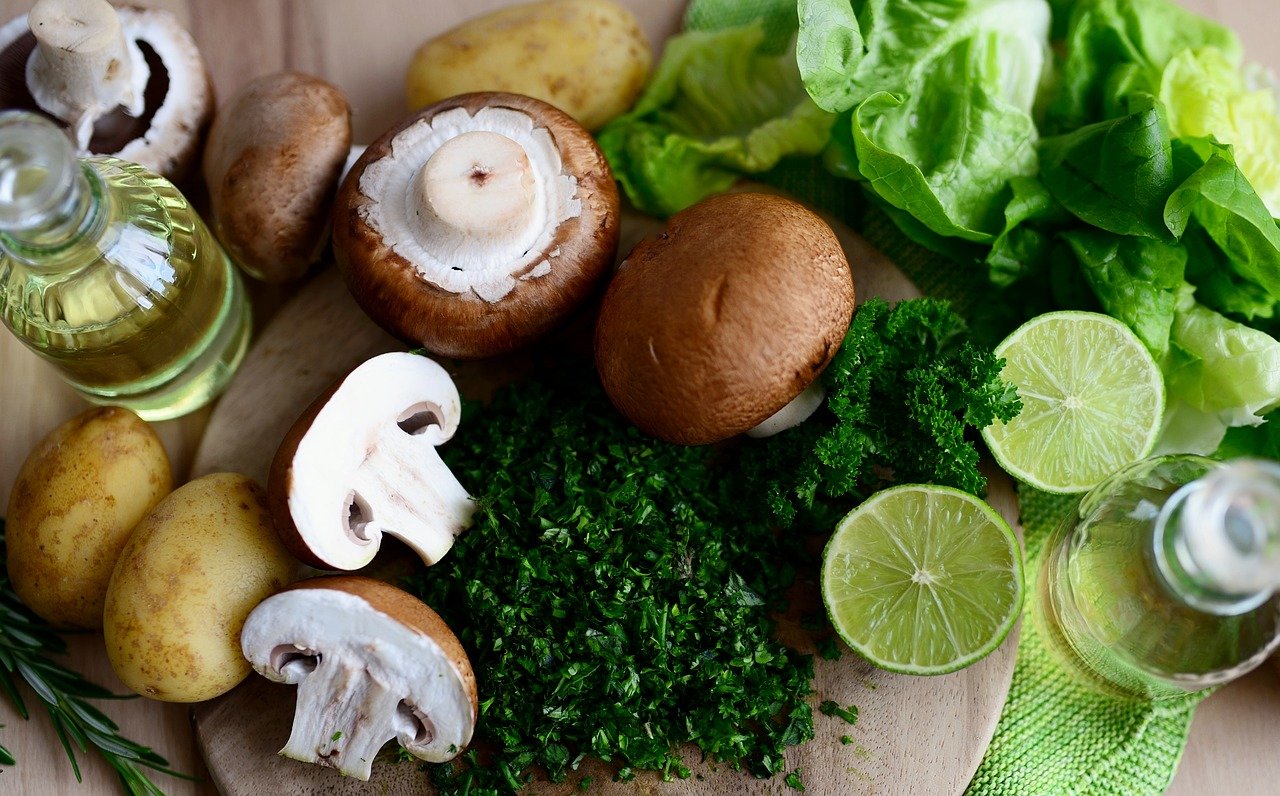
The Science Behind Herb Flavors
Understanding the chemical compounds responsible for the unique flavors of herbs can truly elevate your cooking experience. When we think about herbs, we often just consider their aromatic properties and how they can enhance our dishes. However, there's a fascinating world of chemistry at play that contributes to their distinct tastes. Herbs are packed with terpenes, phenolics, and a variety of other compounds that not only define their flavor profiles but also play a significant role in our health.
For instance, terpenes are aromatic compounds found in many plants, including herbs, and they are responsible for the characteristic scents and flavors we associate with them. When you crush a leaf of basil or mint, the burst of fragrance you experience is due to these volatile terpenes being released. Each herb has its unique combination of these compounds, which can range from sweet and floral to earthy and pungent. This diversity is what allows us to create a symphony of flavors in our cooking.
In addition to terpenes, phenolic compounds contribute to the flavor and aroma of herbs as well. These compounds are known for their antioxidant properties and can provide a depth of flavor that enhances not just the taste but also the nutritional value of your meals. For example, the phenolic compounds in rosemary and thyme not only impart a robust flavor but also offer health benefits that can help protect against various diseases.
To illustrate how these compounds work, consider the following table that highlights some common culinary herbs along with their primary flavor compounds:
| Herb | Primary Flavor Compounds | Flavor Profile |
|---|---|---|
| Basil | Linalool, Eugenol | Sweet, Peppery |
| Rosemary | Camphor, 1,8-Cineole | Woody, Pine-like |
| Thyme | Thymol, Carvacrol | Earthy, Minty |
| Oregano | Carvacrol, Thymol | Warm, Spicy |
When you cook with herbs, you're not just adding flavor; you're also tapping into a rich tapestry of chemistry that can transform a simple meal into a culinary masterpiece. The right combination of herbs can elevate a dish, making it not only more delicious but also more nutritious. So, the next time you're in the kitchen, take a moment to appreciate the complex chemistry behind the herbs you're using. It might just inspire you to experiment with new combinations and techniques!
- What are terpenes and why are they important in herbs?
Terpenes are aromatic compounds that give herbs their unique scents and flavors. They play a crucial role in enhancing the culinary experience and can also have health benefits.
- How can I maximize the flavor of herbs in my cooking?
Using fresh herbs, understanding their flavor profiles, and applying appropriate cooking techniques can help maximize their flavor in your dishes.
- Are there any herbs that are particularly high in antioxidants?
Yes, herbs like rosemary, thyme, basil, and oregano are known for their high antioxidant content, which can contribute to better health.

Culinary herbs are not just mere garnishes or flavor enhancers; they are powerhouses of nutrition and health benefits. When you think about it, adding a sprinkle of fresh basil or a dash of oregano to your dish is like giving your meal a health boost without even trying! These aromatic plants are packed with vitamins, minerals, and unique chemical compounds that can support your overall well-being. From enhancing digestion to boosting your immune system, the benefits of culinary herbs are numerous and fascinating.
One of the most compelling reasons to incorporate herbs into your cooking is their rich nutritional profile. Many culinary herbs are high in essential vitamins such as Vitamin A, C, and K, as well as minerals like calcium, iron, and magnesium. For instance, parsley is not just a pretty garnish; it's loaded with Vitamin K, which is essential for bone health. Similarly, cilantro has been shown to help detoxify heavy metals from the body, making it a great addition to your meals. It's amazing how something so simple can contribute to your health!
Moreover, the medicinal uses of herbs are deeply rooted in history and culture. For centuries, various cultures have utilized herbs for their health-promoting properties. For example, sage is known for its potential to improve cognitive function, while mint can aid in digestion and relieve headaches. These are not just old wives' tales; scientific research continues to uncover the benefits of these herbs, making them more relevant than ever in modern cooking.
As we dive deeper into the health benefits of culinary herbs, it’s essential to highlight their antioxidant properties. Antioxidants play a crucial role in protecting our bodies from oxidative stress, which can lead to chronic diseases. Many common herbs are rich in these protective compounds, making them a smart addition to your diet. For instance, thyme and rosemary are not only flavorful but also boast significant antioxidant content, which helps neutralize harmful free radicals in the body. This is where the magic of herbs truly shines!
To illustrate the antioxidant power of culinary herbs, here’s a quick comparison of some popular options:
| Herb | Antioxidant Compounds | Health Benefits |
|---|---|---|
| Rosemary | Rosmarinic acid, Carnosic acid | Boosts memory, improves digestion |
| Thyme | Thymol, Carvacrol | Supports respiratory health, has antimicrobial properties |
| Basil | Apigenin, Eugenol | Reduces inflammation, promotes heart health |
| Oregano | Carvacrol, Thymol | Antimicrobial properties, supports digestive health |
In addition to their antioxidant properties, many culinary herbs also exhibit anti-inflammatory effects, which can be incredibly beneficial for those suffering from chronic inflammation. Chronic inflammation is linked to various health issues, including heart disease and arthritis. By incorporating herbs such as turmeric, ginger, and garlic into your meals, you can help combat these issues naturally. Turmeric, for example, contains curcumin, a compound known for its powerful anti-inflammatory properties. It’s like having a natural medicine cabinet right in your kitchen!
In summary, culinary herbs are much more than just flavor enhancers; they are a treasure trove of health benefits waiting to be unlocked. By incorporating a variety of these herbs into your daily cooking, you can enhance not only the taste of your meals but also your overall health and well-being. So, the next time you’re in the kitchen, don’t forget to reach for those herbs and let them work their magic!
- What are the best herbs for health benefits? Some of the best herbs include basil, rosemary, thyme, and oregano, each offering unique health advantages.
- Can I use dried herbs instead of fresh ones? Yes, dried herbs can be used, but fresh herbs often provide more flavor and nutrients.
- How can I incorporate more herbs into my diet? You can add herbs to salads, soups, marinades, and even smoothies for an extra health boost.
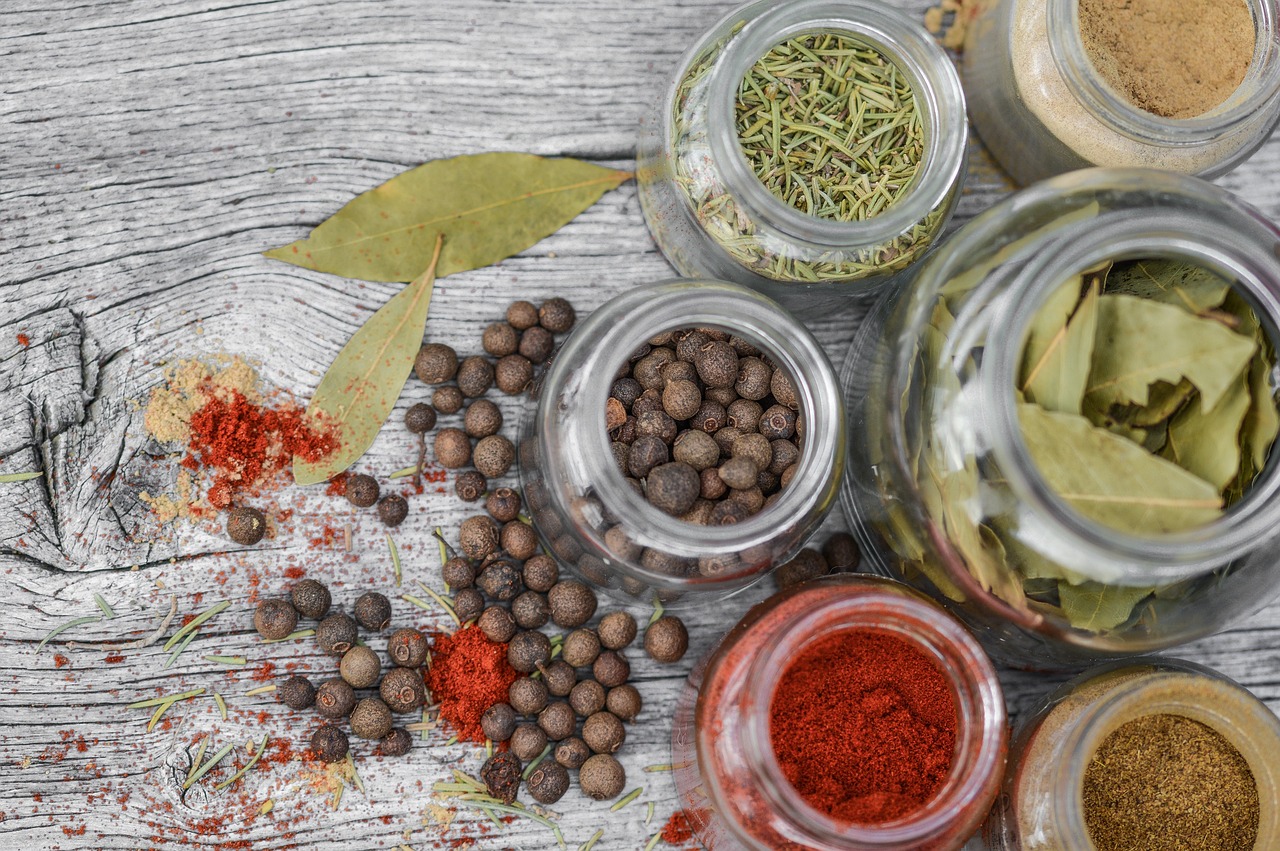
When it comes to enhancing our meals, many of us might think about the taste, aroma, and visual appeal of various ingredients. However, there’s a silent hero in the culinary world that packs a powerful punch—antioxidants. These compounds, found abundantly in culinary herbs, play a crucial role in fighting oxidative stress, which is linked to numerous health issues, including heart disease and cancer. So, what exactly are antioxidants, and why should we care? Well, think of them as your body’s personal bodyguards, protecting your cells from damage caused by free radicals.
Many culinary herbs are not only delicious but also rich in these protective compounds. For instance, herbs like parsley, cilantro, and sage are known for their high antioxidant content. These herbs can easily be incorporated into your daily cooking, making it a breeze to boost your health while tantalizing your taste buds. To illustrate the antioxidant power of some common herbs, take a look at the table below:
| Herb | Key Antioxidants | Health Benefits |
|---|---|---|
| Rosemary | Carnosic Acid, Rosmarinic Acid | Improves memory, protects brain health |
| Thyme | Thymol, Carvacrol | Antimicrobial, supports respiratory health |
| Basil | Eugenol, Linalool | Reduces inflammation, supports digestion |
| Oregano | Carvacrol, Rosmarinic Acid | Antibacterial, boosts immune system |
Incorporating these herbs into your meals can be as simple as tossing them into a salad, adding them to sauces, or using them as a seasoning for meats and vegetables. The beauty of using herbs is that they not only enhance flavor but also provide a health boost that you might not even notice until you feel better overall.
Moreover, the antioxidant properties of these herbs are enhanced when they are fresh. Fresh herbs contain higher levels of these beneficial compounds compared to their dried counterparts. So, if you have the option, consider growing your own herbs or purchasing them fresh from local markets. It’s like having a mini pharmacy right in your kitchen!
To sum it up, the antioxidant properties of culinary herbs are a fantastic reason to include them in your diet. They not only elevate the flavors of your dishes but also contribute significantly to your overall health. So, the next time you sprinkle some fresh basil on your pasta or toss rosemary into your roast, remember that you’re not just adding flavor; you’re also giving your body a little extra love.
Q: What are antioxidants?
A: Antioxidants are compounds that help protect your body from damage caused by free radicals, which can lead to various diseases.
Q: How can I incorporate more herbs into my diet?
A: You can add fresh or dried herbs to salads, soups, sauces, and marinades. Experimenting with different herbs can enhance flavors and boost health benefits.
Q: Are dried herbs as beneficial as fresh herbs?
A: While dried herbs still contain antioxidants, fresh herbs generally have a higher concentration of these beneficial compounds.
Q: Which herbs are the best sources of antioxidants?
A: Some of the best herbs for antioxidants include rosemary, thyme, basil, and oregano. Each offers unique health benefits along with their antioxidant properties.
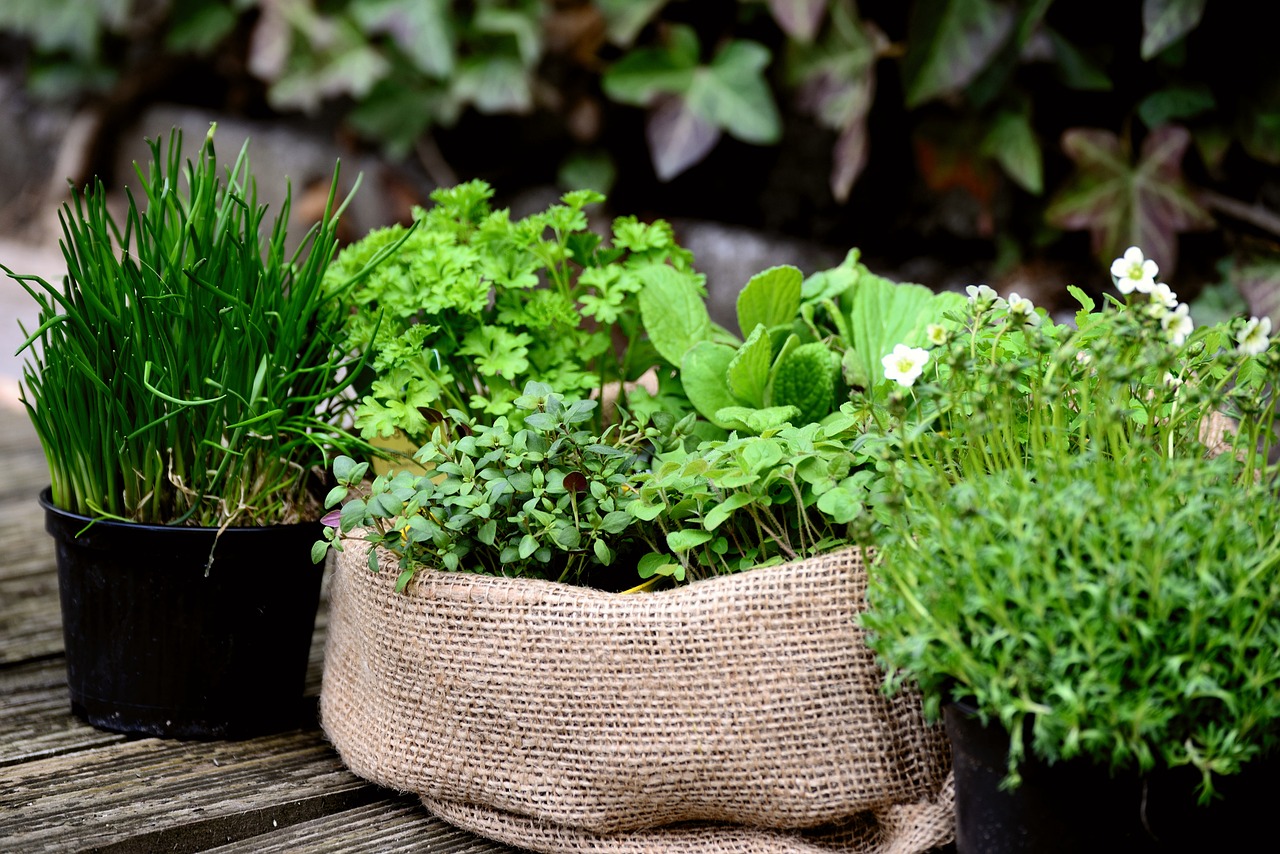
When you think of culinary herbs that pack a punch in both flavor and health benefits, rosemary and thyme are usually at the top of the list. These two herbs have been cherished for centuries, not just for their aromatic qualities but also for their impressive array of health-promoting compounds. Rosemary, with its distinct pine-like aroma, is rich in a variety of chemical compounds, including rosmarinic acid and carnosic acid, which are known for their potent antioxidant properties. On the other hand, thyme is a powerhouse of thymol, a compound that not only adds a warm, earthy flavor to dishes but also contributes to its antimicrobial effects.
Incorporating rosemary and thyme into your meals can be as simple as tossing them into a roast or using them to infuse oils. The beauty of these herbs lies in their versatility; they can enhance the taste of meats, vegetables, and even soups. But what makes them truly special is their ability to deliver health benefits while tantalizing your taste buds. For instance, studies have shown that rosemary can improve digestion and enhance memory, while thyme has been linked to respiratory health and improved immunity.
To better understand the health benefits of rosemary and thyme, let’s take a closer look at their chemical compositions:
| Herb | Key Compounds | Health Benefits |
|---|---|---|
| Rosemary | Rosmarinic acid, Carnosic acid | Antioxidant, Anti-inflammatory, Improves digestion |
| Thyme | Thymol, Carvacrol | Antimicrobial, Respiratory health, Boosts immunity |
Using rosemary and thyme in your cooking doesn’t just elevate your dishes; it also provides a natural way to boost your health. Imagine preparing a roasted chicken infused with rosemary, allowing the herb's oils to penetrate the meat, creating a succulent meal that’s both delicious and good for you. Or consider a hearty vegetable soup seasoned with thyme, where the herb not only enhances the flavor but also contributes to the soup's overall health benefits.
So, the next time you’re in the kitchen, don’t underestimate the power of these herbs. They are more than just garnishes; they are your allies in the pursuit of both flavor and health. With rosemary and thyme, you can create culinary masterpieces that nourish the body and delight the senses.
- What are the best ways to use rosemary and thyme in cooking?
Both herbs can be used fresh or dried. For best flavor, add them early in the cooking process for slow-cooked dishes, or sprinkle fresh leaves on top just before serving for a burst of freshness. - Can I use rosemary and thyme interchangeably?
While they both add flavor, they have distinct tastes. Rosemary is more robust and piney, while thyme has a subtle earthiness. It’s best to use them as intended for optimal flavor. - Are there any health risks associated with consuming rosemary and thyme?
Generally, these herbs are safe in culinary amounts. However, excessive consumption, especially of rosemary oil, can lead to adverse effects. Always consult with a healthcare provider if you have concerns.

Basil and oregano are not just your average culinary herbs; they are powerhouses packed with flavor and health benefits. When you think about Italian cuisine, the first things that may come to mind are the aromatic scents of fresh basil and the robust flavor of oregano. But what really makes these herbs stand out is their rich chemical composition, which not only elevates your dishes but also contributes significantly to your health.
Basil, known scientifically as Ocimum basilicum, is often referred to as the "king of herbs." This vibrant green herb is characterized by its slightly sweet and peppery taste, thanks to its high content of essential oils like eugenol and linalool. These compounds are responsible for its aromatic profile and also offer health benefits such as anti-inflammatory and antibacterial properties. In fact, studies have shown that basil can help combat various infections and even promote cardiovascular health.
On the other hand, oregano, or Origanum vulgare, is often hailed as a culinary staple in Mediterranean dishes, with its earthy and slightly bitter flavor. This herb is particularly rich in phenolic compounds, such as carvacrol and thymol, which are known for their potent antioxidant properties. These compounds help to neutralize free radicals in the body, thereby reducing oxidative stress and lowering the risk of chronic diseases. The flavor of oregano also intensifies when dried, making it a versatile ingredient that can be sprinkled onto pizzas, pastas, and salads.
When combined, basil and oregano create a symphony of flavors that can transform even the simplest of dishes into gourmet experiences. Their complementary profiles not only enhance the taste but also amplify the health benefits. For example, using a blend of these herbs in a tomato sauce can provide a rich source of antioxidants, vitamins A and C, and dietary fiber, all while tantalizing your taste buds.
To maximize the health benefits of basil and oregano, consider using them fresh whenever possible. Fresh herbs often contain higher concentrations of essential oils and nutrients compared to their dried counterparts. However, if dried herbs are your go-to, make sure to store them in a cool, dark place to preserve their potency.
Incorporating basil and oregano into your daily cooking is not just about enhancing flavor; it's about embracing a healthier lifestyle. Here are a few simple ways to include these herbs in your meals:
- Add fresh basil to salads for a burst of flavor and nutrients.
- Sprinkle dried oregano over roasted vegetables to elevate their taste.
- Mix both herbs into marinades for meats or fish to enhance flavor and health benefits.
- Infuse olive oil with basil and oregano for a delightful dressing or dipping sauce.
In summary, basil and oregano are much more than just herbs; they are essential ingredients that can enhance your culinary creations while providing a multitude of health benefits. So next time you’re in the kitchen, don’t forget to reach for these flavorful allies!
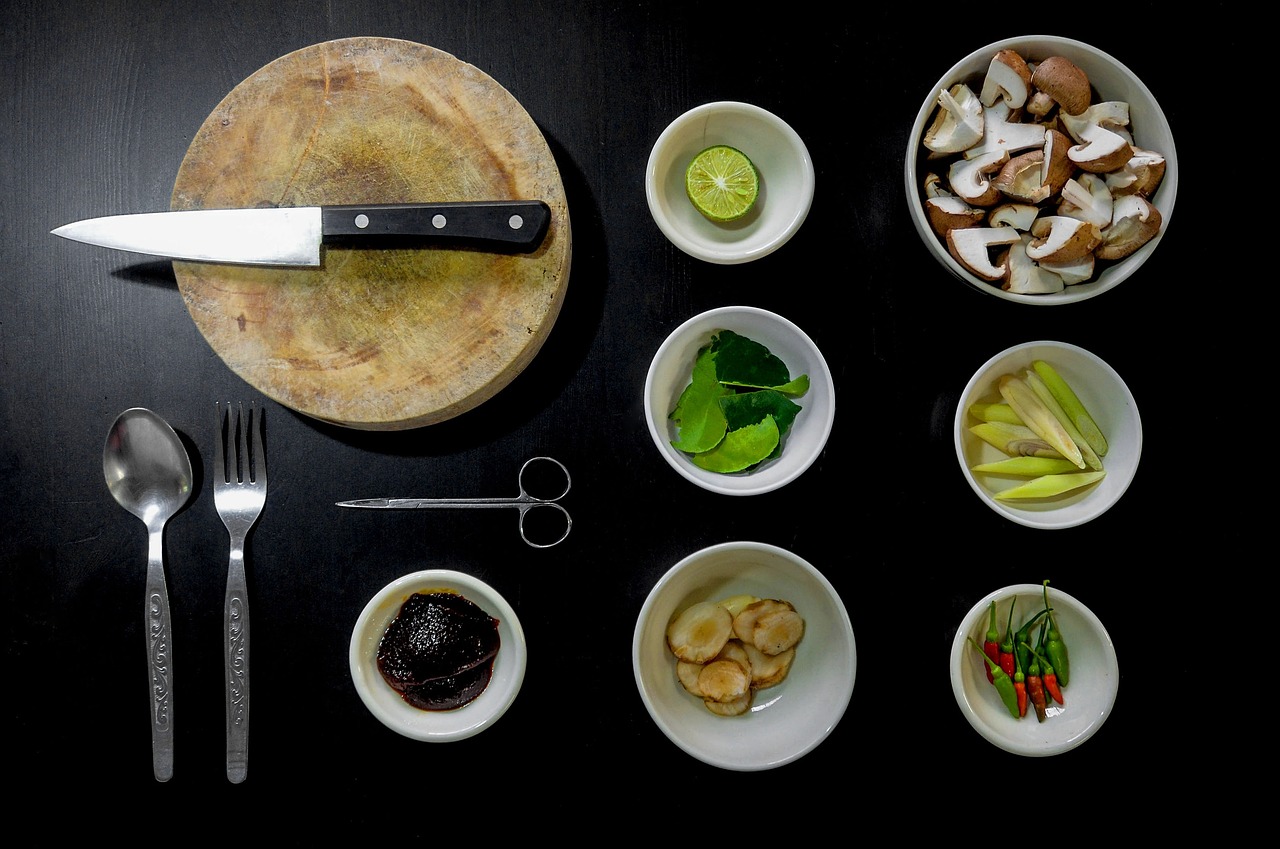
When we think of culinary herbs, we often focus on their ability to elevate the flavors of our dishes. However, the real magic lies in their anti-inflammatory properties. Chronic inflammation is a silent adversary that can lead to a plethora of health issues, including heart disease, arthritis, and even some cancers. Fortunately, incorporating certain herbs into your diet can act as a powerful ally in combating this condition.
So, which herbs should you consider adding to your meals for their anti-inflammatory benefits? Let’s delve into a few of the most effective ones:
- Turmeric: This vibrant yellow spice contains curcumin, a compound renowned for its strong anti-inflammatory effects. It’s often used in curries and can also be added to smoothies for a health boost.
- Ginger: Another powerhouse, ginger contains gingerols, which have been shown to reduce inflammation and pain. It’s fantastic in teas, marinades, or even baked goods.
- Garlic: Not only does garlic add a punch of flavor, but it also has compounds that can lower inflammation markers in the body. Roasting garlic brings out its sweetness, making it a delightful addition to many dishes.
- Cilantro: This herb is not just flavorful; it’s also rich in antioxidants and has been shown to help reduce inflammation in the body.
These herbs not only bring unique flavors to your meals but also work behind the scenes to promote better health. For instance, turmeric can be easily sprinkled into soups or stews, while ginger can be infused into teas or used in stir-fry dishes. The beauty of these herbs lies in their versatility. You can seamlessly integrate them into your cooking without even realizing you’re doing your body a favor.
Moreover, the anti-inflammatory effects of these herbs are often amplified when combined. For example, a ginger-garlic stir-fry not only tantalizes your taste buds but also supercharges your meal with health benefits. The synergy of these compounds can lead to greater effects than when consumed individually, making your culinary creations not just delicious but also a healing experience.
Incorporating these herbs into your diet doesn’t have to be complicated. A simple infusion of garlic and ginger in your next sauté can transform a basic dish into a flavor-packed, health-boosting delight. Remember, cooking is not just about filling your stomach; it’s about nourishing your body and spirit. So why not make the most of what nature has provided?
In conclusion, the anti-inflammatory effects of culinary herbs are profound and far-reaching. By choosing the right herbs, you can not only enhance the taste of your meals but also take a significant step toward better health. So the next time you're in the kitchen, think beyond flavor and consider the incredible benefits that these herbs can bring to your table.
Q: How do I incorporate these herbs into my daily diet?
A: You can add them to soups, salads, smoothies, marinades, and teas. Experimenting with different recipes will help you find the best ways to enjoy their flavors and health benefits.
Q: Are there any side effects to consuming these herbs?
A: Generally, culinary herbs are safe when used in moderation. However, some individuals may experience allergic reactions or digestive discomfort. It’s always best to consult with a healthcare professional if you have concerns.
Q: Can I use dried herbs instead of fresh?
A: Yes! Dried herbs can be just as effective as fresh ones, though they may have a more concentrated flavor. Just remember that dried herbs are typically stronger, so you may need to adjust the quantity you use.
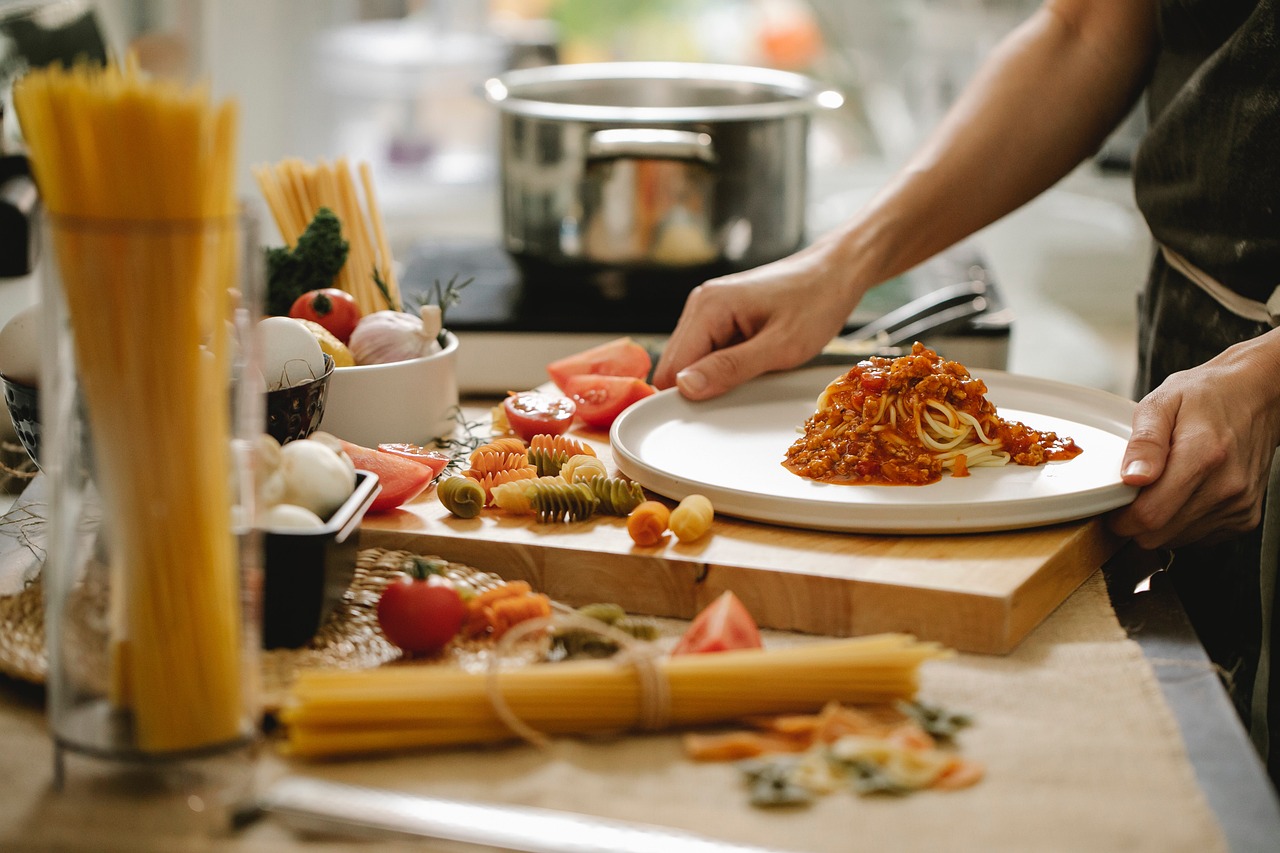
When it comes to cooking, herbs are like the secret sauce that can elevate a dish from mundane to magnificent. But did you know that the way you use these herbs can significantly affect their flavor and health benefits? Different cooking techniques can either enhance or diminish the unique qualities that herbs bring to your culinary creations. Let’s dive into some of the most effective methods for using herbs in your cooking!
One of the most popular techniques is infusion, where you extract the flavors and health benefits of herbs into liquids like oils, vinegars, or broths. This method not only allows for a more intense flavor but also ensures that the beneficial compounds from the herbs are absorbed into the dish. To create a simple herb-infused oil, for example, you can gently heat your favorite oil and add fresh herbs such as basil or rosemary. Allow the mixture to steep for about 30 minutes, and you'll have a fragrant oil that can be drizzled over salads or used for cooking.
Another technique that deserves your attention is sautéing and grilling. These methods can enhance the flavors of herbs by caramelizing their natural sugars and releasing aromatic oils. When sautéing, it’s best to add herbs towards the end of the cooking process to prevent them from losing their vibrant flavors. For grilling, consider using whole sprigs of herbs like thyme or rosemary as skewers for meats and vegetables. Not only do they impart a smoky flavor, but they also contribute their health benefits directly to the food.
It’s important to remember that not all herbs are created equal when it comes to cooking techniques. Some herbs, like parsley and cilantro, are best added fresh at the end of cooking to preserve their delicate flavors. Others, like bay leaves and sage, benefit from longer cooking times, allowing their flavors to meld beautifully with the dish. Understanding these nuances can make all the difference in your cooking.
Here’s a quick summary of cooking techniques and the best herbs to use:
| Cooking Technique | Best Herbs to Use |
|---|---|
| Infusion | Basil, Rosemary, Thyme |
| Sautéing | Parsley, Oregano, Chives |
| Grilling | Thyme, Rosemary, Sage |
| Long Cooking | Bay Leaves, Sage, Dill |
In conclusion, the way you incorporate herbs into your cooking can profoundly impact both the flavor and health benefits of your dishes. By experimenting with different techniques, you can discover the perfect balance that suits your palate. So, the next time you’re in the kitchen, remember to think about how you’re using your herbs. Are you letting their flavors shine, or are you burying them under a mountain of heat? The choice is yours, and the possibilities are endless!
- Can I use dried herbs instead of fresh herbs? Yes, dried herbs can be used, but they are more potent, so use them sparingly. A general rule is to use one-third the amount of dried herbs compared to fresh.
- How do I store fresh herbs? Fresh herbs can be stored in the refrigerator wrapped in a damp paper towel or in a glass of water like a bouquet.
- Are there herbs that should never be cooked? Yes, delicate herbs like basil and cilantro are best added at the end of cooking to maintain their flavor.

When it comes to maximizing the potential of culinary herbs, infusion techniques are your best friends in the kitchen. Infusion is a process that allows you to extract the rich flavors and health benefits from herbs, transforming ordinary oils, vinegars, and broths into extraordinary culinary delights. Imagine pouring a drizzle of rosemary-infused olive oil over your salad or using basil-infused vinegar to elevate your marinades. The possibilities are endless!
To start with, the basic principle of infusion involves soaking herbs in a liquid, allowing their essential oils and flavors to meld together. This can be done through various methods, each with its own unique benefits. For instance, cold infusion is a gentle method that preserves the delicate flavors and nutrients of herbs. Simply combine your chosen herbs with oil or vinegar and let them sit in a cool, dark place for a few days. On the other hand, hot infusion involves heating the liquid, which can extract flavors more quickly but may alter some of the delicate compounds.
Here are some popular infusion techniques you might want to explore:
- Herb-Infused Oils: Combine fresh or dried herbs with a neutral oil like olive or grapeseed. Heat gently to avoid burning the herbs, then strain and store in a dark bottle.
- Herb-Infused Vinegars: Place herbs in vinegar and let them steep for a week or two. This method creates a zesty addition to salads and marinades.
- Herb-Infused Broths: Add herbs to your broth during the cooking process. This not only enhances the flavor but also infuses the broth with health benefits.
It's important to note that the quality of herbs you use will significantly impact the final product. Fresh herbs will yield a more vibrant flavor, while dried herbs are more concentrated and potent. Additionally, always ensure your herbs are clean and free from any pesticides or contaminants. A quick rinse under cold water can do wonders.
Once you've mastered the infusion technique, you'll find that you can customize flavors to suit your palate. Want a little heat? Add some chili flakes to your oil. Prefer a citrusy zing? Toss in some lemon zest with your herbs. The beauty of infusion is that it allows for creativity and personalization in your cooking.
In summary, infusion techniques are a fantastic way to enhance your culinary creations with the rich flavors and health benefits of herbs. By experimenting with different herbs and methods, you can create unique oils, vinegars, and broths that will not only tantalize your taste buds but also contribute to your overall well-being.
Q: How long should I infuse herbs in oil or vinegar?
A: For oil, a cold infusion typically takes about 1-2 weeks, while hot infusion can be done in as little as 30 minutes. Vinegar infusions usually take 1-2 weeks as well. Taste periodically to achieve your desired flavor.
Q: Can I use dried herbs for infusion?
A: Absolutely! Dried herbs are more concentrated and can work wonderfully for infusions. Just remember that you'll need less dried herb compared to fresh.
Q: How should I store my infused oils and vinegars?
A: Store infused oils and vinegars in a cool, dark place, preferably in a glass container. Use them within a few months for the best flavor and quality.
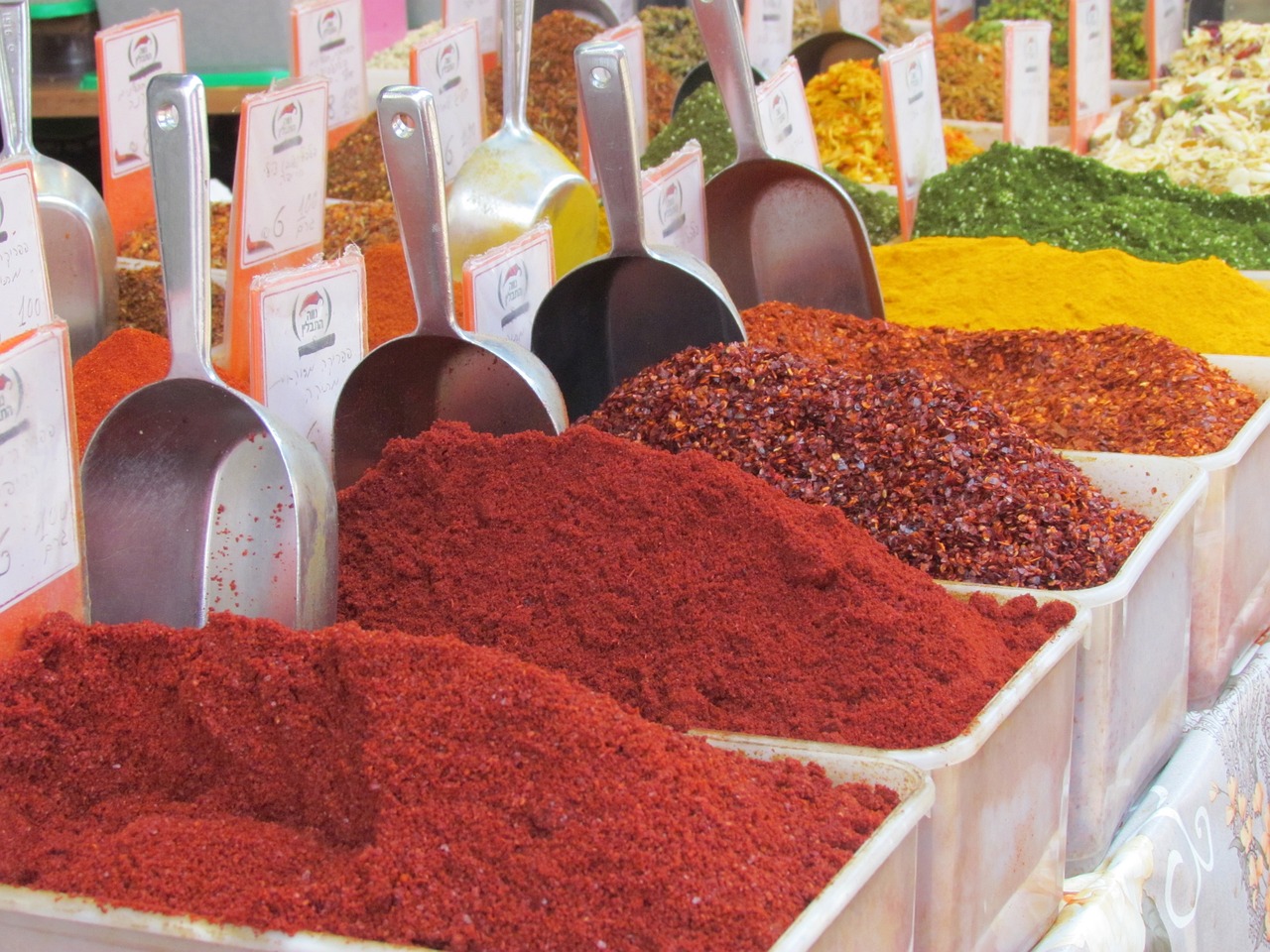
Sautéing and grilling are two of the most popular cooking techniques that can significantly enhance the flavors and health benefits of culinary herbs. When you sauté herbs, you expose them to heat, which activates their essential oils and releases their aromatic compounds. This process not only intensifies their flavors but also brings out those unique notes that can transform a simple dish into something extraordinary. Imagine sautéing fresh basil in olive oil; the aroma alone can transport you to an Italian kitchen, where every meal is a celebration of flavor!
Grilling, on the other hand, adds a smoky dimension to herbs, creating a delightful contrast to their fresh, vibrant taste. When you grill herbs, particularly heartier ones like rosemary or thyme, the high heat caramelizes their natural sugars, creating a complex flavor profile that can elevate meats, vegetables, and even fruits. The charred bits that form on the surface add texture and depth, making your dishes not just tasty but also visually appealing.
To maximize the benefits of sautéing and grilling herbs, consider the following tips:
- Timing is Key: Add delicate herbs like parsley or cilantro towards the end of cooking to prevent them from wilting and losing their flavor.
- Use the Right Heat: For sautéing, medium heat is ideal to prevent burning while ensuring the herbs release their flavors. Grilling requires high heat, so make sure your grill is preheated.
- Pair Wisely: Combine herbs with complementary ingredients. For instance, grilling rosemary with chicken or sautéing garlic with spinach can create harmonious flavors.
Additionally, consider creating herb-infused oils to use in your sautéing and grilling. Simply heat your choice of oil and add a handful of fresh herbs, allowing the flavors to meld together. This infused oil can then be used to sauté vegetables or as a marinade for grilled meats, adding an extra layer of flavor and health benefits. The beauty of using herbs in cooking lies not just in their flavors but also in their ability to enhance the nutritional value of your meals.
In summary, both sautéing and grilling are fantastic methods for unlocking the full potential of culinary herbs. By understanding how to properly utilize these techniques, you can create dishes that are not only delicious but also packed with the health benefits that herbs offer. So, next time you’re in the kitchen, don’t shy away from experimenting with sautéing and grilling your favorite herbs. You might just discover a new favorite flavor combination!
Q1: Can I use dried herbs instead of fresh when sautéing or grilling?
A1: Yes, you can use dried herbs, but remember that they are more concentrated in flavor. Use about one-third the amount of dried herbs compared to fresh herbs to avoid overpowering your dish.
Q2: What are some good herb combinations for grilling?
A2: Great combinations include rosemary with lamb, thyme with chicken, and basil with grilled vegetables. Experimenting with different pairings can lead to delightful discoveries!
Q3: How do I store leftover herb-infused oil?
A3: Store herb-infused oil in a sealed container in the refrigerator for up to two weeks. Always check for any signs of spoilage before using.
Frequently Asked Questions
- What are the main chemical compounds in herbs that affect flavor?
Herbs contain a variety of chemical compounds, including terpenes, phenolics, and volatile oils, which contribute to their unique flavors. Terpenes are responsible for the aromatic qualities, while phenolics can add bitterness and complexity. Understanding these compounds can help you enhance your cooking.
- How do culinary herbs benefit my health?
Culinary herbs are not just for flavor; they are packed with nutrients and antioxidants that can promote health. Many herbs, like basil and rosemary, have been shown to have anti-inflammatory and antioxidant properties, which can help combat oxidative stress and reduce chronic inflammation in the body.
- Which herbs are particularly high in antioxidants?
Some of the best herbs for antioxidants include rosemary, thyme, basil, and oregano. These herbs are not only flavorful additions to your meals but also help protect your cells from damage caused by free radicals, contributing to better overall health.
- What cooking methods maximize the health benefits of herbs?
To get the most out of your herbs, consider using cooking techniques such as infusion, sautéing, and grilling. Infusing oils or vinegars with herbs extracts their flavors and health benefits, while sautéing and grilling can enhance their taste and aromatic qualities.
- Can I use dried herbs instead of fresh ones?
Yes, dried herbs can be used in place of fresh ones, but keep in mind that dried herbs are more concentrated in flavor. A general rule of thumb is to use one-third the amount of dried herbs compared to fresh. Just remember that fresh herbs often provide more health benefits due to their higher antioxidant content.
- Are there any herbs I should avoid if I'm on medication?
Some herbs can interact with medications, so it's essential to consult with a healthcare professional if you're taking any prescription drugs. For instance, garlic and ginger can affect blood thinning medications. Always prioritize your health and safety when incorporating new herbs into your diet.



















